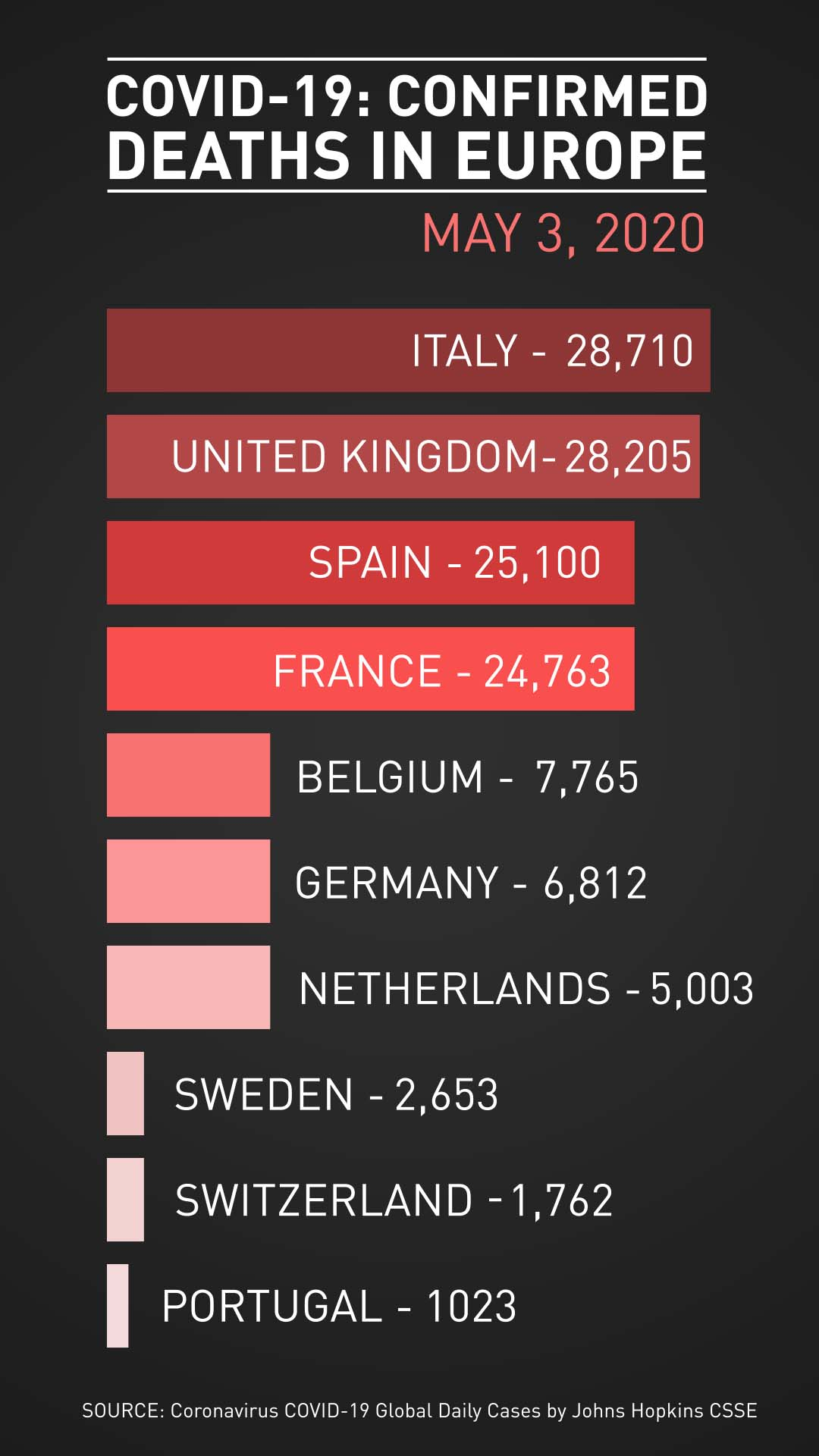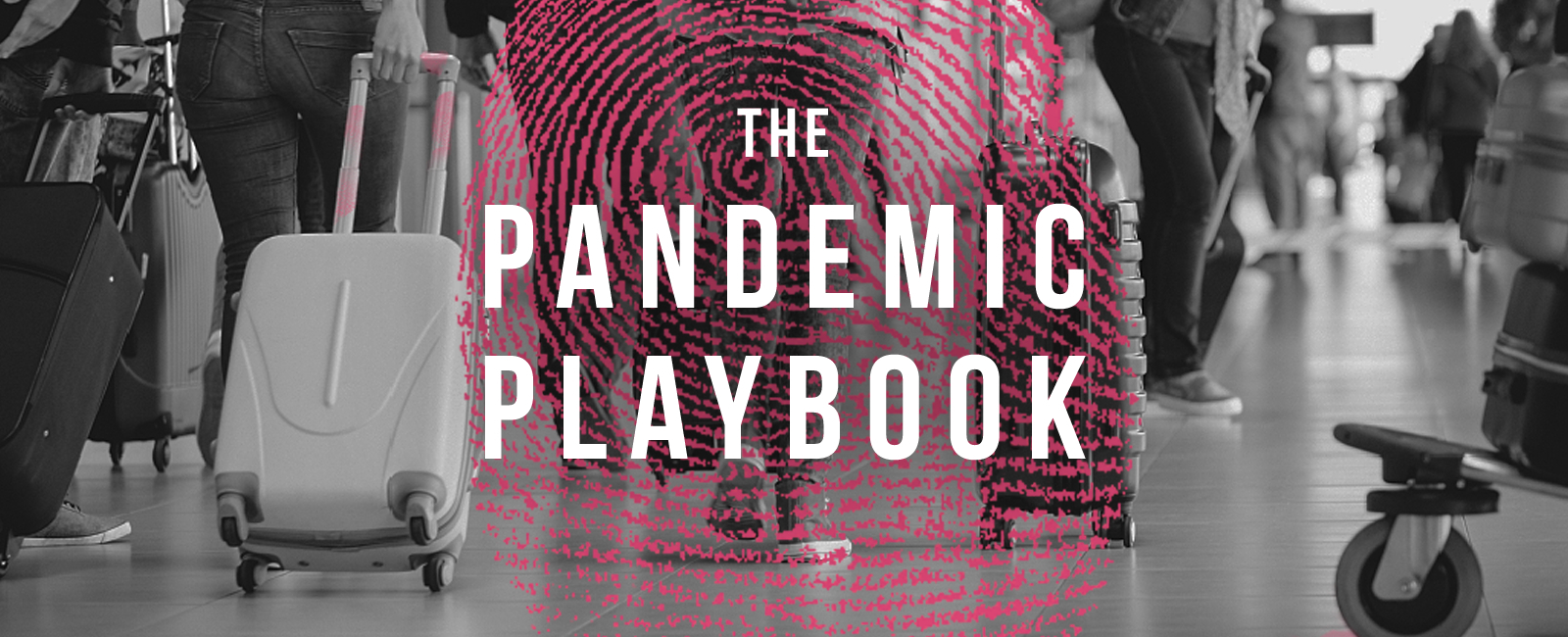MAIN HEADLINES:
·Germany reopens churches for Sunday service for the first time since the beginning of lockdown. Attendance numbers are restricted, churchgoers must respect a 2-meters distance between each other, singing is banned, and priests have to wear a mask when giving communion.
·Russia recorded its biggest one-day increase in COVID-19 cases today , for a total of 10,633 new cases. The Russian capital, Moscow, is considering turning sports and shopping centers into temporary hospitals to deal with the growing number of patients.
**·Only 17 percent of UK citizens are in favor of lifting the lockdown now **toreopen schools, pubs, and restaurant. The overwhelming majority believe it's still too soon to ease restrictions.
·Spain recorded 164 new COVID-19 deaths on Saturday , the lowest daily rise since 18 March.
·France is considering a quarantine of 14 days for anyone entering the country after the easing of the lockdown on 11 May.
·YouTube deleted the account of conspiracy theorist David Icke after he shared information on the coronavirus. YouTube has a strict policy against sharing misinformation and disputing the existence and transmission of COVID-19.
**·Nearly 3,000 passengers are quarantined **on a TUI cruise ship in a German port on the North Sea coastafter one person tested positive to COVID-19.
**·At least 40 people died and 50 were injured **as a result of a prison riot in Venezuela , sparked by an inmate protest asking for relatives to be allowed to bring in food.
**·Schools and mosques reopened in Iran's low risks areas **that have consistently not recorded new cases of COVID-19.
·Pakistan, Afghanistan, South Africa, and Egypt all reported****the biggest single-day spike of new cases in their country on Saturday.
· On Labour Day weekend China recorded a leap in people traveling outside their home cities , first of all the city of Wuhan. Compared to the month of April, travel within the country was up to 50 percent at the start of this weekend.
00:10

FROM OUR EUROPEAN CORRESPONDENTS:
Andrew Wilson in London
The British government has begun serious internal discussions aimed at publicly establishing its exit plan by the end of this week. Boris Johnson is expected to lay out measures which might include the reopening of building sites, relaxing rules on outdoor behaviors, and the reopening of primary schools.
As another 621 deaths were announced on Saturday a poll for a national newspaper showed that less than one in five adults would currently feel safe to go back to work.
Doctors, charities and senior public figures have all responded negatively to the government's comments about long-term shielding of the over-70s and are warning about the dangers of an 'age-based' lockdown. Local doctors are reporting that many elderly patients are expressing concerns about their abilities to manage extended periods of isolation.
Medical experts are investigating possible links between obesity and Britain's high death toll. Figures suggest the proportion of severely obese patients in intensive care is twice that of overweight people in the population.
Rahul Pathak in Madrid
On Saturday Spaniards took to the streets for exercise after 49 days of confinement.Under the de-escalation plan set out by the government, those aged between 14 and 70 could take a walk near their homes from 6am until 10am.Then from 10am to 12pm, people over the age of 70 were permitted to go out with their carers if necessary.
Later on Saturday the Prime Minister Pedro Sanchez made a televised address announcing that from Monday it would be obligatory to wear face masks whilst travelling on public transport.Sanchez said the government would distribute 6 million masks at train and bus stations and give another 7 million to local authorities.

Germany reopened its churches today for Sunday service, but new social distancing measures must be respected. //AP Photo/Matthias Schrader
France
Despite gradually starting to ease its lockdown on 11 May, France has extended its state of emergency until 24 July.
This extension will be followed by new measures being announced on Monday, mostly regarding traveling. The French government is considering a mandatory quarantine of 14 days for anyone entering the country after 11 May.
French people will be allowed to leave their homes without carrying a self-certification and travel within regions, but the use of masks will be mandatory, with police being allowed to fine those who don't comply. On 11 May shops and primary schools will reopen.

**Check out **
The Pandemic Playbook
, CGTN Europe's major investigation into the lessons learnt from COVID-19
Poland
Poland is among the European countries that will start easing their lockdown on 4 May. On Monday hotels, shopping centers and outdoor sports areas will reopen across the country, as part of the government's four-phase plan to restart the economy.
The Prime Minister Mateuzs Morawiecki has already reopened parks and forests and on 6 May kindergartens and nurseries will also be allowed to open their doors. Primary schools will stay closed until 24 May.
On 10 May the country will hold a presidential election by postal vote, a system which has been criticized at national and European level for undermining democracy. But the senate is yet to approve the postal-only vote.

A sign hanging from a balcony in Warsaw calls for postponing the presidential election. //JANEK SKARZYNSKI / AFP
FROM OUR GLOBAL COLLEAGUES:
CGTN China:
China's travel industry reopens in time for May Day holiday
CGTN America:
NASA begs astronaut launch spectators: 'Please stay home!'
**CGTN Africa: **
South Africa registers highest number of cases in a 24 hour cycle
MORE FROM CGTN:
**Sign up **
here
** to get the COVID-19 Europe bulletin sent directly to your inbox**
Source(s): Reuters
 简体中文
简体中文

